
PROFESSIONAL MASTER’S DEGREE
Fridays (afternoon/night) and Saturdays (morning/afternoon)
August 2021
600 hours

From an interdisciplinary view of Economy, the Professional Master in Economics (MPE-IDP) is organized in order to meet the demands of the various profiles of public servants and other professionals who work directly or indirectly with public policies and government management. MPE-IDP is a stricto sensu master's degree, approved and recommended by CAPES, which favors the application of theoretical knowledge to the solution of problems related to the formulation, monitoring and evaluation of public policies and government management.
Want to know in detail the courses
of the MASTER`S DEGREE IN
Dev MPE?
Click and meet the Coordinators and the Professional Master's Staff in Economics at IDP
The student body of the Professional Master's Program in Economics at IDP is predominantly made up of public servants and professionals from the private sector, who aim to deal with the increasing complexity of the sphere of public policies and government management. Click and get to know our current student body.
Student Body list
The Program's formative process, strongly influenced by an interdisciplinary perspective, includes disciplines that relate the specific knowledge of the Economy area with other areas, such as Political Science, Economics and Law. Click and get to know the course's commentary.
The objective of this course is to introduce students to the fundamental concepts, traditionally used, in statistical analysis applied to the evaluation of public policies. In addition, the free statistical software R will be introduced; this will be the basic tool for processing and analyzing data in the course. Advantages in using R include: reproducibility of analyzes; free software, with no need to purchase a license; contains a wide variety of analytical and graphical resources; is the most used software in the world for data analysis. For better visualization of some of the concepts for data analysis, when necessary, Excel software will also be used.
Course SyllabusThe course aims to analyze the determinants of economic growth, short-term fluctuations in the economy and relevant aspects on the impact and implementation of the main economic policies: fiscal and monetary. The course should also prepare the student to understand the sources of long-term growth in a country, the causes of economic cycles and the public policies necessary for sustainable growth. In addition, the student should understand the mechanisms by which fiscal and monetary policies affect the country's growth and how we can improve it.
Course SyllabusThe main objective of the course is to expose in detail the fundamental theories of modern microeconomic theory necessary for training in the professional master's degree in economics. The first module of the course focuses on classic theories of individual choice and consumer behavior. The second module discusses the theory of the firm and market structures. In turn, module three of the course makes a careful analysis of decision making under uncertainty and general balance. Finally, in module four, special emphasis will be placed on economic applications and recent developments in microeconomics.
Course SyllabusThe general objective of the course is to present the process of scientific production in the area of applied social sciences, in particular, in the area of Economics. In order to achieve this objective, the aim is to train participants to know and understand the theoretical-scientific discourse, with a view to applying the methods and techniques necessary for the organization and production of scientific work. The course covers research techniques, discussions of methodology in various branches of applied social sciences and steps necessary to develop a research project. In short, develop, execute and complete a research project.
Course SyllabusThe objective of this course is to enable students to work with mathematical concepts that will be used in subsequent subjects, such as, Microeconomics, Macroeconomics, Econometrics, among others. During the course, the following topics will be worked on: Matrices and determinants; Leontief input-product matrix; Limits and Derivatives; Partial and second order derivatives; Unrestricted and restricted maximization and Integrals.
Course SyllabusThe discipline aims to make a connection between aspects of corporate finance theory and microeconomic theory, with an emphasis on the impacts of regulation on the economic and financial performance of the regulated company.
Course SyllabusThe objective of this course is to enable students to discuss, analyze and apply the main concepts related to the evaluation of efficiency and productivity through stochastic boundaries and Data Envelopment Analysis (DEA).
Course SyllabusIntroduction to public policy evaluation techniques, causality and traditional econometrics, randomized control trials, instrumental variables, propensity score matching, LATE, Differences in differences, discontinuous regressions, Generalized Propensity Score.
Course SyllabusPresentation of the types of methodological approaches to the evaluation of public policies and social programs and exposure of concepts such as: experiments, pairing, differences in differences, instrumental variables and discontinuous regression, as well as discussion of their applications in the evaluation of public policies.
Course SyllabusThe course aims to discuss the usefulness and applicability of different approaches and methods in the economic evaluation of investment projects and in determining the value of companies or their business units.
Course SyllabusThe objective of the course is to present, in a practical way, the current principles, techniques and tools of empirical analysis of large databases (administrative records, sample surveys or unusual bases). The emphasis will be on acquiring data acquisition skills, cleaning, visualizing, analyzing and modeling data, as well as registering projects. It is an applied course in which the real challenges of data analysis will be discussed and addressed.
Course SyllabusTo present the evolution and the main concepts in the field of behavioral sciences and their implications for the practice of public policies. At the end of the course, participants should be able to apply the theoretical and conceptual tools addressed to the improvement of public policies in concrete situations.
Course SyllabusThe main objective of the course is to explain in detail the fundamental concepts of defense economics and competition. At the end of the course, students should be able to understand market structures and understand the concepts of economics in the defense of competition, differentiate anticompetitive behaviors and their characteristics, understand theoretical and practical foundations of a competitive analysis of merger acts and anticompetitive behaviors and be able to solve practical cases.
Course SyllabusStudy of the characteristic and historical aspects of the evolution of the Brazilian economy, addressing the following topics: historical evolution; economic policy in various periods; external influences; political constraints and the different theoretical interpretive models.
Course SyllabusMacroeconomics of agribusiness; Agricultural policy; Agribusiness Credit - official credit; Agribusiness credit - private securities; Taxation of agribusiness; Agricultural risk - insurance; Agricultural risk - options and futures; Agribusiness sustainability.
Course SyllabusThe main objective of the course is to explain in detail the fundamental concepts of defense economics, competition and game theory. The first module of the discipline focuses on the analysis of market structures and market power, in addition to providing a context for the defense of competition in Brazil and the procedure for analyzing mergers at CADE. The second module discusses the methods for defining the relevant market, market concentration indices, different methods for analyzing unilateral effects in mergers and antitrust remedies. In turn, module three of the course studies the game theory and competitive strategy of companies, in addition to detailing the analysis of the effects of potentially anticompetitive conduct and conducting an analysis of collusive practices (detection techniques and cartel damage calculations). Finally, in module four, special emphasis will be given to recent developments in economic analysis in defense of competition: the economics of digital platforms.
Course SyllabusThe main objective of the course is to understand the concept and scope of Social Security in Brazil, as well as to determine the main elements that constitute its institutional framework. Based on this understanding, the development of critical reflection on the different dimensions of Social Security in Brazil is sought, in order to allow the elaboration of analyzes of its different aspects: institutional, fiscal and distributive.
Course SyllabusStylized facts in Finance; Returns in Brazil; Return and Risk; Capital Allocation; Construction of Portfolios; CAPM and APT; Market Efficiency; Asset Pricing and Rationality; Behavioral Finance; Fixed Income and ETTJ; Carry Trade.
Course SyllabusPublic finance in Brazil. Union revenue and expenditure. Primary result. Public debt. Composition of revenue. Problems of the national tax system. Tax reform. Composition of expenditure. Weight and evolution of social security expenses. Pension reform. Social spending and effect on regressivity. Personnel expenses and pension reform. Spending limit. Fiscal space. General Balance Sheet of the Union. Relationship between Treasury and Central Bank. Tax, state and privatization subsidies and expenditures, federal issues and state finances.
Course SyllabusEconomic Analysis of Law, through the application mainly of microeconomics and social welfare economics, provides a behavioral theory based on how people respond to incentives to examine the formation and impacts of legislation and government action. In this sense, in addition to the traditional subjects of Law and Economics, such as economic theory of property, contracts, civil liability, criminal proceedings and judicial proceedings, themes related to the following areas: New Institutional Economics, Game Theory and Evaluation of public policies ex ante and ex post.
Course SyllabusThe general objective of the course is to develop the main concepts of the analysis of time series in macroeconomic phenomena. The discipline has as specific objectives to prepare the student with the econometric tool to describe the behavior of economic series, in addition to allowing the student basic notions of economic forecasting. This course covers basic methods and modern time series theory, while providing a basis for applied research.
Course SyllabusThe purpose of this course is to provide a solid introduction to macroeconomic analysis and international finance. Our focus will be on the models and methods that form the core of modern open economy macroeconomics. The goal is to provide students with an understanding of what macroeconomics is and how macroeconomists approach economic policy problems in an open economy.
Course SyllabusThe objective of the course is to familiarize the student with the main mechanisms related to market failures and possible ways to correct this problem through regulation. At the end of the course, students should be able to: identify market failures, identify situations where the government can improve market allocation and use a range of economic instruments to correct market failures.
Course SyllabusThe aim of the course is to introduce students to the issue of economic growth. For that, the foundations of the theory will be given, as well as the various models of economic growth.
Course SyllabusThe objective is to offer students the theoretical bases to understand the debate about fiscal policy in the media, and eventually develop research in the area. The main articles and their results will be presented.
Course SyllabusThe main objective of the course will be to present an overview of the main challenges of the national economic agenda, particularly in a context of crisis. The structuring of the course, with the participation of a professor invited by a meeting, aims to present students with different views on the role of the State in the current crisis and on the impact of the crisis on the future of the Brazilian economy.
Course SyllabusThe course covers topics in interest and foreign exchange that are dispersed in the literature of macroeconomics, international economics and finance. The goal is to offer students the theoretical basis to understand the news about macroeconomics and finance, and eventually develop research in the area.
Course SyllabusIn the period between its foundation on 19 and December 2020, the Professional Master's Program in Economics at IDP awarded 20 masters, with works that address the three branches of government and the three levels of the federation. Browse and learn more about the defended works, published articles and the trajectory of our egresseds!
Application for registration in the selection process, in a specific form, available on the IDP portal
Updated Academic and Professional Curriculum;
Memorial;
Oral assessment (interviews).
SEMESTERS
PRESENTIAL MEETINGS
(Friday and Saturday)
AREAS OF INTEREST
OPTIONAL SUBJECTS
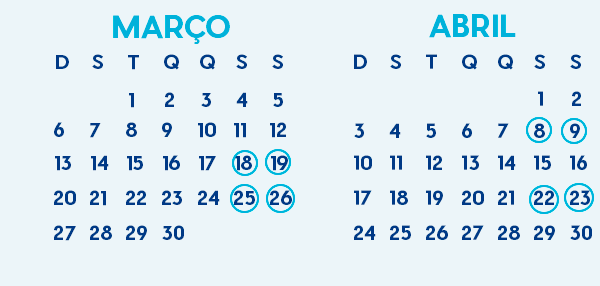
How about trying to be our student? In the IDP Experience, you can watch a class of the Professional Master in Economics live, free of charge.
LEARN MOREIt is the opportunity to study some subjects of our Professional Master in Economics, having contact with our teachers and methodology. In a future entry into the full course, the subjects can be taken advantage of!
LEARN MOREAn event that promotes the meeting between prospective students, and our coordinators and professors, who bring all the details of the course. It is the ideal time to clear all your questions!
LEARN MOREIDP has academic partnerships with foreign universities and institutes to give students the opportunity to experience periods of international studies and research. The agreements signed by the IDP allow entry to more than 15 educational institutions in 6 different countries. Check out some partner institutions and programs!



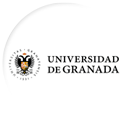

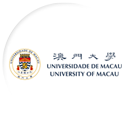

 REDUCED CLASSES
REDUCED CLASSESSmall classes at all levels of education. Greater networking and contact between teachers and students.
 EXCELLENT INFRASTRUCTURE
EXCELLENT INFRASTRUCTUREConfortable, modern classrooms, laboratories and study rooms, which facilitate exchange and student learning.
 FOCUS ON THE REAL WORLD
FOCUS ON THE REAL WORLDTeaching methodology based on case studies, in which the acquisition of knowledge and skills occurs through the resolution of real problems.

Researching is one of the main pillars of the training process of the Professional Master in Economics at IDP. PPG invests in the qualification of the intellectual production of teachers, students and alumni with a series of initiatives, such as research groups, workshops and direct funding for research.
The Professional Master's Program in Economics at IDP has made a positive difference not only in the academic education of its student body, but also in producing actions of impact and innovative character, both in its intellectual production, as in the professional performance of NDP and students and graduates. Click and check actions of social, economic and cultural impact and visibility with the external community

Conceived by Prof. Caio Resende, Coordinator of the Professional Master's Economics, the Open Class consists of offering free short courses open to the community in the areas of public administration, economics, law and communication. The courses are taught live, online and with IDP certification. Click and see the courses with a theme related to Economy.
The “Open Space IDP” is a project that launches Free and Open Minicourses in the areas of Public Administration, Economics and Law. It is the result of a partnership of IDP's Master's Programs and its main objective is to contribute to the quality of public debate, offering society rigorous technical and scientific knowledge on current topics in the most different areas of knowledge.
ACCESS OPEN SPACE COURSES
The Laboratory for Evaluation and Innovation in Public Policies (LAIPP) is an initiative of the Professional Master's Program in Economy at IDP which aims to form a large network of researchers from different institutions in Brazil, building a collaborative environment whose potential impact is to make reach public managers with the knowledge resulting from innovative experiments published in the most prestigious international scientific journals in the areas of public policy. Click and see more.
Podcasts reflect the search for innovative ways to translate academic knowledge and share it with society. Click and get to know the IDP podcasts that have the direct participation of the Professional Master's Program in Economics. Check it out!

Ctrl Enter
#Data Science
All you ever wanted to know about Data Science, but were afraid to ask, is the new Data Science Podcast from IDP.
LEARN MORE
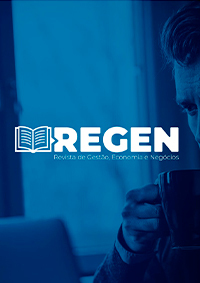
With a process of continuous submissions and semiannual periodicity, REGEN is interested in original articles, in Portuguese and English, which address topics related to management, economics and business.
LAST ISSUE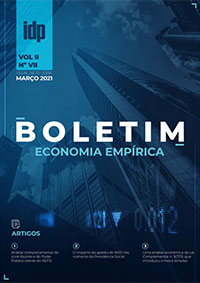
The Empirical Economics Bulletin is the official journal of the Empirical Economics Research Group, linked to the IDP Master's Programs in Economics and Public Administration. It has a bimonthly publication containing articles, working papers, essays, texts for discussion and lean technical opinions on the various topics that have an interface with Economic Science. He is interested in unpublished publications and serves as a means of disseminating internal and external scientific production.
LAST ISSUE PREVIOUS EDITIONS